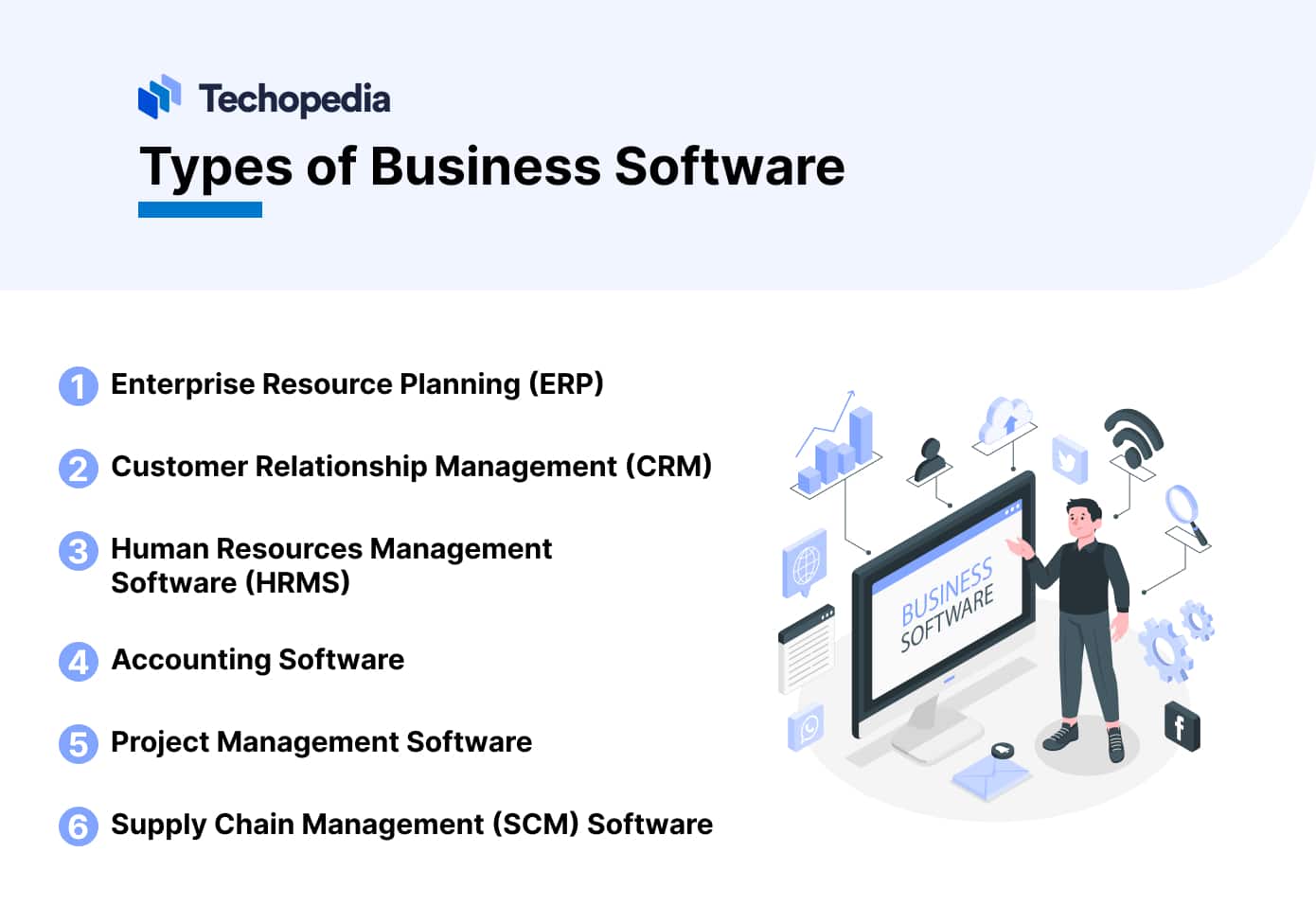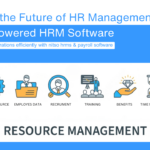Introduction
In today’s fast-paced business environment, leveraging the right software is crucial for streamlining operations, improving productivity, and driving growth. Whether you’re managing a small startup or running a large enterprise, using the best business software can help optimize workflows, enhance collaboration, and improve decision-making.
This article explores the best business software available in 2025, categorized by function, to help you make informed choices for your organization.

1. Business Management Software
1. Microsoft 365
Microsoft 365 remains a leading choice for businesses of all sizes. It offers a suite of essential tools, including:
- Word, Excel, PowerPoint, and Outlook for document creation and communication.
- Microsoft Teams for collaboration and video conferencing.
- OneDrive and SharePoint for cloud storage and file sharing.
- Advanced security features to protect sensitive business data.
2. Zoho One
Zoho One is an all-in-one business suite designed for efficiency. It includes:
- CRM for managing customer relationships.
- Accounting software for financial tracking.
- HR management tools.
- Collaboration and communication platforms.
- Customizable business applications with Zoho Creator.
2. Project Management Software
2. Trello
Trello is an intuitive, visually appealing project management tool that uses Kanban boards to organize tasks. Features include:
- Task assignment and progress tracking.
- Integrations with Slack, Google Drive, and more.
- Customizable workflows and automation.
2. Asana
Asana is designed for complex project management needs. Key benefits include:
- Task prioritization and deadline tracking.
- Integration with over 100 business apps.
- Team collaboration through shared workspaces.
- Custom workflow automation.
3. Customer Relationship Management (CRM) Software
1. Salesforce
Salesforce is the industry leader in CRM solutions, offering:
- AI-driven insights and automation.
- Customizable dashboards for sales and marketing.
- Customer support integration.
- Scalable solutions for businesses of all sizes.
2. HubSpot CRM
HubSpot CRM provides a free, user-friendly option with:
- Contact and lead management.
- Email tracking and automation.
- Sales pipeline visibility.
- Integration with marketing and support tools.
4. Accounting and Finance Software
1. QuickBooks
QuickBooks is a top choice for small to medium-sized businesses. Features include:
- Automated bookkeeping and invoicing.
- Tax calculation and preparation tools.
- Payroll management.
- Real-time financial reporting.
2. FreshBooks
FreshBooks is ideal for freelancers and small businesses, offering:
- Easy invoicing and expense tracking.
- Time tracking and project billing.
- Secure online payments.
- Financial insights and reporting.
5. Human Resources (HR) and Payroll Software
1. BambooHR
BambooHR simplifies HR tasks with features such as:
- Employee data management.
- Payroll processing.
- Time-off tracking.
- Performance evaluation tools.
2. Gusto
Gusto is a popular payroll and HR solution for small businesses, providing:
- Automated payroll processing.
- Employee benefits management.
- Compliance and tax filing assistance.
- Customizable onboarding workflows.
6. Marketing Automation Software
1. HubSpot Marketing Hub
HubSpot’s marketing automation software helps businesses grow with features like:
- Email marketing and automation.
- SEO and content management.
- Social media marketing tools.
- Lead generation and nurturing.
2. Mailchimp
Mailchimp offers easy-to-use email marketing and automation solutions, including:
- Pre-built and customizable email templates.
- Customer segmentation.
- Analytics and performance tracking.
- AI-powered content suggestions.
7. Communication and Collaboration Tools
1. Slack
Slack is a leading team communication platform, known for:
- Organized chat channels.
- Video and voice calls.
- Integration with productivity tools like Google Drive and Trello.
- Workflow automation through Slack bots.
2. Zoom
Zoom is a reliable video conferencing tool with:
- HD video and audio calls.
- Screen sharing and collaboration tools.
- Webinar hosting capabilities.
- Secure end-to-end encryption.
8. E-commerce Software
1. Shopify
Shopify is a top-rated e-commerce platform, offering:
- Drag-and-drop store builder.
- Integrated payment processing.
- Inventory and order management.
- Marketing and SEO tools.
2. WooCommerce
WooCommerce is a WordPress-based e-commerce solution providing:
- Customizable online store templates.
- Seamless WordPress integration.
- Support for multiple payment gateways.
- Advanced inventory management.
9. Cybersecurity and Data Protection Software
1. Norton 360 for Business
Norton 360 provides comprehensive cybersecurity features:
- Real-time threat protection.
- VPN for secure browsing.
- Cloud backup for data protection.
- Password manager.
2. Bitdefender GravityZone
Bitdefender is ideal for enterprise security, offering:
- Advanced endpoint protection.
- Network threat prevention.
- AI-driven malware detection.
- Cloud-based security management.
10. Cloud Storage and File Management
1. Google Drive
Google Drive is a widely used cloud storage solution with:
- 15GB of free storage (expandable plans available).
- Seamless collaboration via Google Docs, Sheets, and Slides.
- Secure file sharing with permission controls.
- Integration with Google Workspace.
2. Dropbox Business
Dropbox Business enhances file management with:
- Automatic backups and file versioning.
- Advanced security features.
- Team collaboration tools.
- Integration with Microsoft and Adobe products.
Conclusion
Selecting the best business software depends on your specific needs and industry. Whether you require project management, accounting, customer relationship management, or cybersecurity solutions, these tools can help streamline operations and enhance productivity. Investing in the right software ensures efficiency, security, and sustained business growth in 2025 and beyond.









